The programme is only conducted in Lithuanian language. Entry requirements for this particular programme can be found in the programme description provided in Lithuanian language.
in Lithuanian
From thermal power plants to smart home systems, thermal engineering is needed wherever energy transformation is important. The programme provides the competencies to design and develop modern energy systems and create sustainable solutions for the future. You will become experts in solving both everyday and complex scientific energy challenges. Career opportunities range from developing innovative equipment to managing international scientific projects.
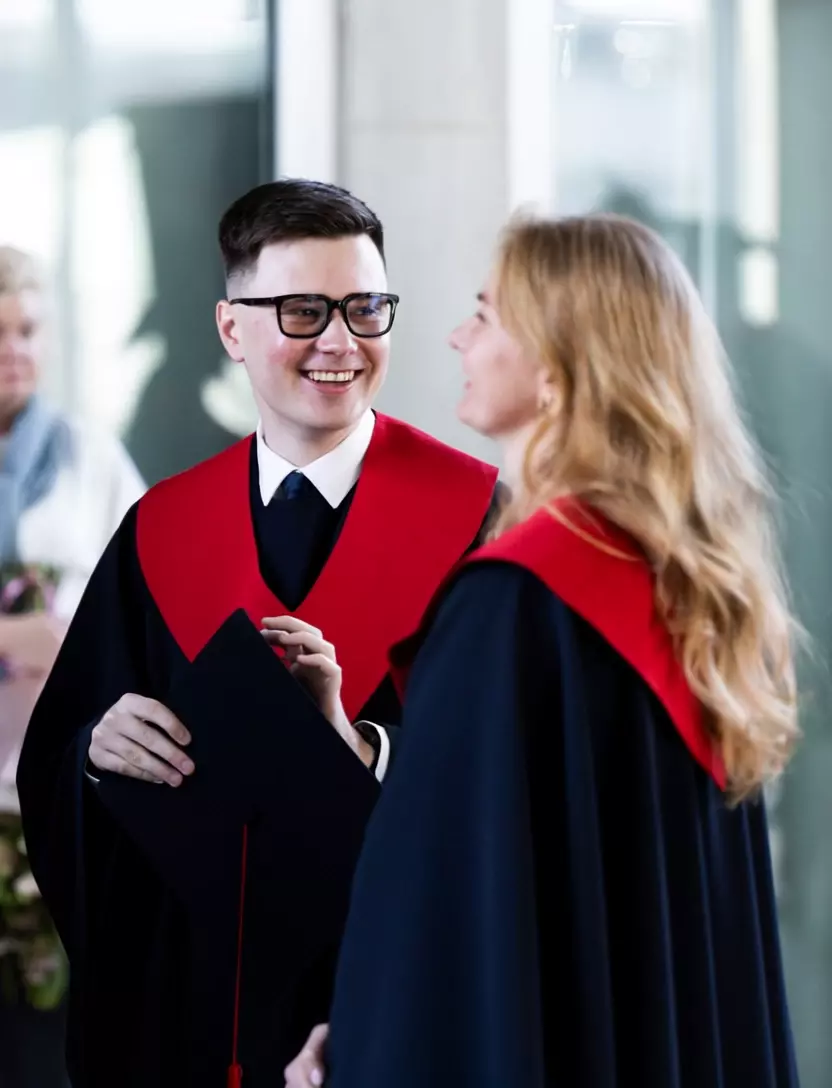
In this programme, top lecturers and experts in their fields will share their latest knowledge. During your studies, you will have networking opportunities with industry leaders and companies. As a graduate, you will be able to digitise data and process management.

You will study in ergonomically equipped classrooms and carry out your experiments using state-of-the-art equipment. The university has plenty of spaces for creativity and relaxation.
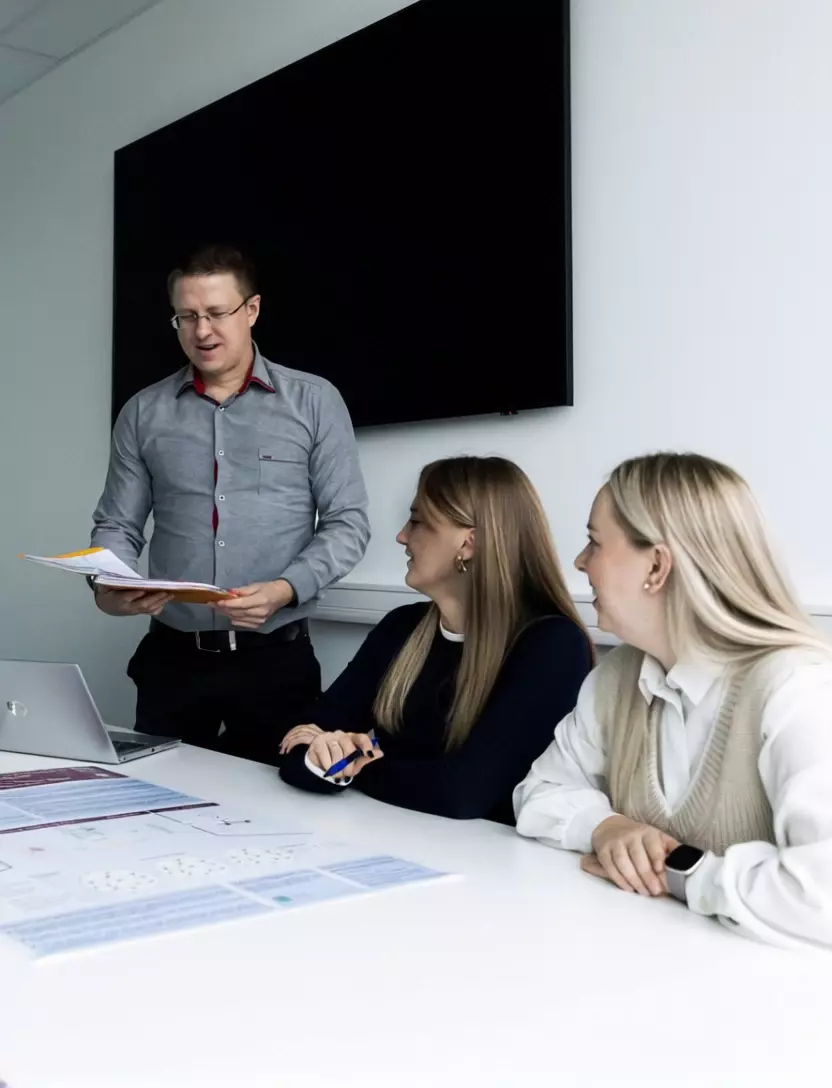
This study programme uses real business case studies – you will learn by analysing them and gain valuable practical insights. You will have the opportunity to specialise and create value for industry and society by specialising in research and final projects.
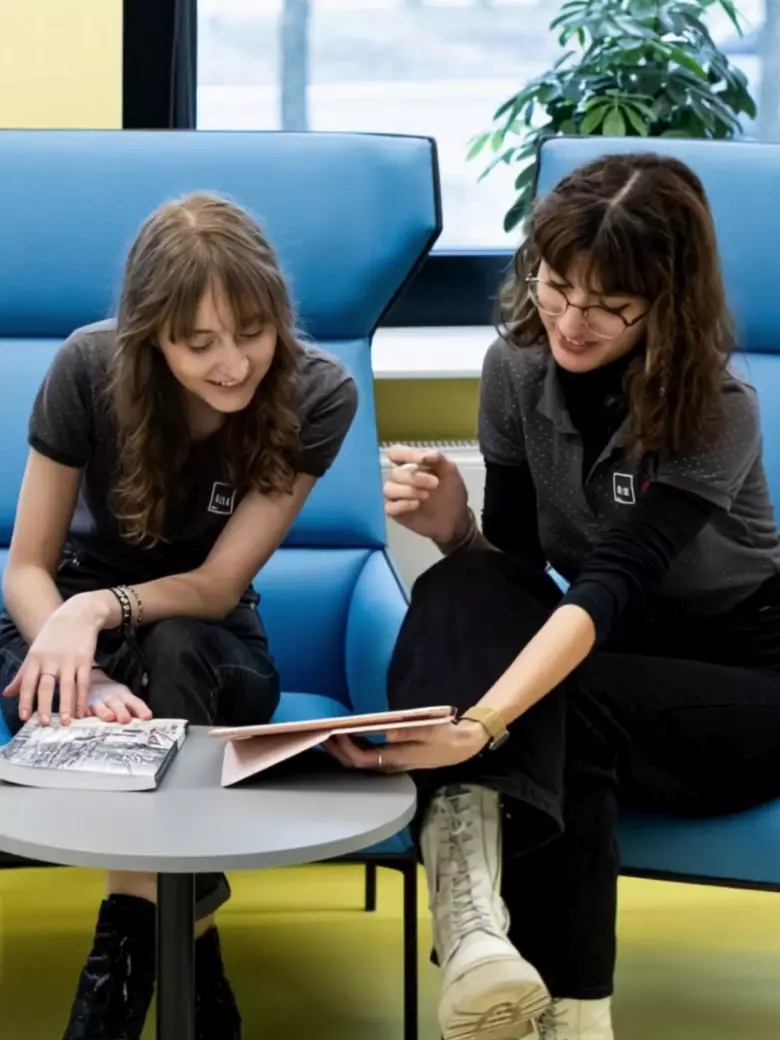
Choose modules according to your interests and goals. The coursework is self-directed, so you can make the most of your study time. You will have the chance to choose your final project topics and tackle real-life energy problems.
Energy engineering is a pathway into the dynamic and ever-changing field of energy. You will graduate with the knowledge and skills needed to tackle global energy management challenges, develop efficient systems and contribute to a sustainable world.
All of these skills will open up unlimited career opportunities in the thermal engineering sector:
Improves energy production and consumption processes, aiming to ensure their efficiency and reduce environmental impact.
Develops and applies new technologies to ensure the reliability and progress of energy systems in a wide range of industries.
Develops future energy solutions such as renewable energy sources, smart grid technologies and integrated energy management systems.
| Module name | Credits | Method of organisation |
|---|
| Advanced Energy Technologies | 6 | Blended learning |
| Energy Economics | 6 | Blended learning |
| Research Project 1 | 6 | Blended learning |
| Thermal Kinetics | 6 | Blended learning |
| Courses of Study Field (Competence of Expert) | 6 |
| Optimisation of Combustion Process | 6 | Blended learning |
| Business Process Management | 6 | Blended learning |
| Development of Challenge-Based Innovation | 3 | Blended learning |
| Optional Micro-modules | 3 | Distance learning |
| Multimedia Content Creation Methods | 6 | Blended learning |
| Modern Sensors and Systems | 6 | On-campus learning |
| Data Mining Methods | 6 | Blended learning |
| Cryptographic Systems | 6 | Blended learning |
| Studies of Modern Languages (Level A1) | 6 | On-campus learning |
| Studies of Modern Languages (Level A2) | 6 | On-campus learning |
| Studies of Modern Languages (Level B1) | 6 | On-campus learning |
| Studies of Modern Languages (Level A1) | 6 | On-campus learning |
| Studies of Modern Languages (Level A2) | 6 | On-campus learning |
| Studies of Modern Languages (Level B1) | 6 | On-campus learning |
| Studies of Modern Languages (Level A1) | 6 | On-campus learning |
| Studies of Modern Languages (Level A2) | 6 | On-campus learning |
| Studies of Modern Languages (Level B1) | 6 | On-campus learning |
| Studies of Modern Languages (Level A1) | 6 | On-campus learning |
| Studies of Modern Languages (Level A2) | 6 | On-campus learning |
| Studies of Modern Languages (Level B1) | 6 | On-campus learning |
| Studies of Modern Languages (Level A1) | 6 | On-campus learning |
| Studies of Modern Languages (Level A2) | 6 | On-campus learning |
| Studies of Modern Languages (Level B1) | 6 | On-campus learning |
| Studies of Modern Languages (Level A1) | 6 | On-campus learning |
| Studies of Modern Languages (Level A2) | 6 | On-campus learning |
| Studies of Modern Languages (Level B1) | 6 | On-campus learning |
| Business Law | 6 | Blended learning |
| Strategic Management | 6 | On-campus learning |
| Project Planning and Organisation | 6 | Blended learning |
| Studies of Modern Languages (Level C1) | 6 | On-campus learning |
| Module name | Credits | Method of organisation |
|---|
| Renewable Energy Engineering | 6 | Blended learning |
| Research Project 2 | 6 | Blended learning |
| Sustainable Energy | 6 | Blended learning |
| Two-Phase Flow Thermal Hydromechanics | 6 | Blended learning |
| Courses of Study Field (Competence of Expert) | 6 |
| Energy Efficiency Assessment | 6 | Blended learning |
| Quality Management | 6 | Distance learning |
| Development of Challenge-Based Innovation | 6 | Distance learning |
| Principles of Image Perception | 6 | Blended learning |
| Application of Artificial Intelligence in Robotics and their Systems Control | 6 | Blended learning |
| Multivariate Statistical Models | 6 | Blended learning |
| Data Security Technologies | 6 | Blended learning |
| Studies of Modern Languages (Level A2) | 6 | On-campus learning |
| Studies of Modern Languages (Level B1) | 6 | On-campus learning |
| Studies of Modern Languages (Level B2) | 6 | On-campus learning |
| Studies of Modern Languages (Level A2) | 6 | On-campus learning |
| Studies of Modern Languages (Level B1) | 6 | On-campus learning |
| Studies of Modern Languages (Level B2) | 6 | On-campus learning |
| Studies of Modern Languages (Level A2) | 6 | On-campus learning |
| Studies of Modern Languages (Level B1) | 6 | On-campus learning |
| Studies of Modern Languages (Level B2) | 6 | On-campus learning |
| Studies of Modern Languages (Level A2) | 6 | On-campus learning |
| Studies of Modern Languages (Level B1) | 6 | On-campus learning |
| Studies of Modern Languages (Level B2) | 6 | On-campus learning |
| Studies of Modern Languages (Level A2) | 6 | On-campus learning |
| Studies of Modern Languages (Level B1) | 6 | On-campus learning |
| Studies of Modern Languages (Level B2) | 6 | On-campus learning |
| Studies of Modern Languages (Level A2) | 6 | On-campus learning |
| Studies of Modern Languages (Level B1) | 6 | On-campus learning |
| Studies of Modern Languages (Level B2) | 6 | On-campus learning |
| Administrative Law | 6 | Blended learning |
| Management of Persons and their Groups | 6 | On-campus learning |
| Project Social and Economical Evaluation | 6 | Blended learning |
| Academic Writing | 6 | On-campus learning |
| Module name | Credits | Method of organisation |
|---|
| Environment Protection in Energy Production | 6 | Blended learning |
| Modelling of Thermal Hydromechanical Processes | 6 | Blended learning |
| Processes of Heat Transformation | 6 | Blended learning |
| Research Project 3 | 6 | Blended learning |
| Courses of Study Field (Competence of Expert) | 6 |
| Optimisation of Thermal Energy Systems | 6 | Blended learning |
| Business Process Analytics | 6 | Blended learning |
| Optional Challenges | 6 | Distance learning |
| 3D Visualization Methods | 6 | Blended learning |
| Programmable Logical Controllers | 6 | Blended learning |
| Time Series Analysis | 6 | Blended learning |
| Blockchain Methods | 6 | On-campus learning |
| Studies of Modern Languages (Level B1) | 6 | On-campus learning |
| Studies of Modern Languages (Level B2) | 6 | On-campus learning |
| Studies of Modern Languages (Level C1) | 6 | On-campus learning |
| Studies of Modern Languages (Level B1) | 6 | On-campus learning |
| Studies of Modern Languages (Level B2) | 6 | On-campus learning |
| Studies of Modern Languages (Level C1) | 6 | On-campus learning |
| Studies of Modern Languages (Level B1) | 6 | On-campus learning |
| Studies of Modern Languages (Level B2) | 6 | On-campus learning |
| Studies of Modern Languages (Level C1) | 6 | On-campus learning |
| Studies of Modern Languages (Level B1) | 6 | On-campus learning |
| Studies of Modern Languages (Level B2) | 6 | On-campus learning |
| Studies of Modern Languages (Level C1) | 6 | On-campus learning |
| Studies of Modern Languages (Level B1) | 6 | On-campus learning |
| Studies of Modern Languages (Level B2) | 6 | On-campus learning |
| Studies of Modern Languages (Level C1) | 6 | On-campus learning |
| Studies of Modern Languages (Level B1) | 6 | On-campus learning |
| Studies of Modern Languages (Level B2) | 6 | On-campus learning |
| Studies of Modern Languages (Level C1) | 6 | On-campus learning |
| Labour Law | 6 | On-campus learning |
| Business Process Management | 6 | Blended learning |
| Financial Management Decisions | 6 | Blended learning |
| Marketing Management | 6 | Blended learning |
| Negotiation and Conflict Management | 6 | Blended learning |
| Project Planning and Organisation | 6 | Blended learning |
| Psychology of Leadership and Management | 6 | Blended learning |
| Project Quality and Risk Management | 6 | On-campus learning |
| Public Speaking | 6 | On-campus learning |
| Module name | Credits | Method of organisation |
|---|
| Master’s Degree Final Project | 30 | Blended learning |
The programme is only conducted in Lithuanian language. Entry requirements for this particular programme can be found in the programme description provided in Lithuanian language.
in Lithuanian
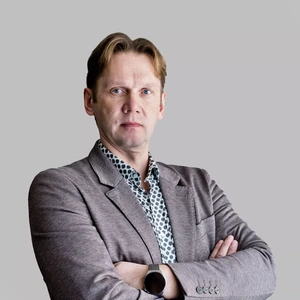
The MSc in Thermal Engineering gives me the opportunity to deepen my knowledge of energy processes, to understand the control of thermal processes, and to find innovative solutions for the energy system. It offers a broad perspective – if you are interested in technology, energy and innovation, it will begin to broaden your competences.
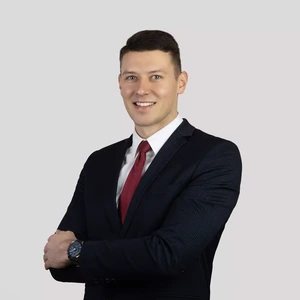
Thermal engineering has always been a relevant and promising career path in the ever-changing energy sector. This study programme is distinguished by its comprehensiveness, providing a wide range of knowledge in the context of energy and the application and integration of renewable technologies. I am currently pursuing my career in the Lithuanian Heat Suppliers Association, contributing to solutions for improving the efficiency of heat suppliers’ economy throughout Lithuania.
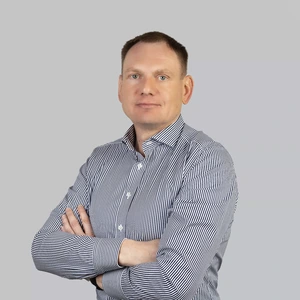
As the head of an engineering company, I can confidently say that thermal engineering is one of the most sought-after and fastest-growing fields in industry today. Through our long-term cooperation with KTU, we have seen that this study programme prepares specialists who not only have a solid theoretical foundation, but also a broad approach to technological solutions. In particular, the company’s employees who have graduated from the Master’s programme stand out.
All modules are available in Lithuanian only, including lectures, assignments and exams.
The work of a thermal engineer is varied and dynamic. It combines both computer-based tasks and practical challenges on a construction site or in an operating company. A degree in thermal engineering opens up opportunities to become a thermal systems designer, construction manager, operations specialist, consultant, expert or even company director.
Yes, there is a growing demand for thermal engineers who are responsible for optimising and reducing the use of energy resources. This is particularly important in the context of the increasing global focus on climate change and energy efficiency. The field also has a direct link to new technologies and innovations, which is why thermal engineering studies and jobs can now offer many opportunities both in Lithuania and abroad.
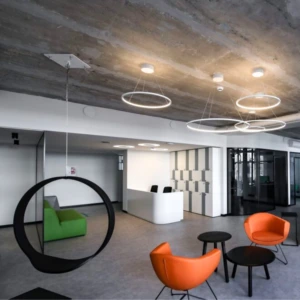
Talk to us, study with us:
K. Donelaičio St. 73, LT-44249 Kaunas
phone +370 679 44 555
email studijos@ktu.lt
Faculty of Mechanical Engineering and Design
XII Chamber
Studentų St. 56, LT-51424 Kaunas
email midf@ktu.lt
 virtual tour
virtual tour